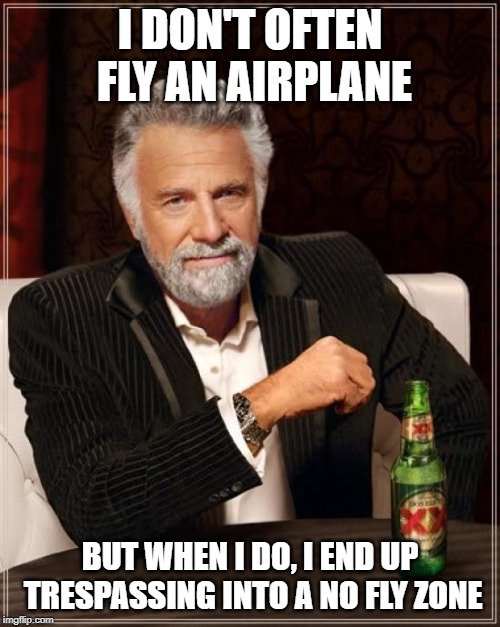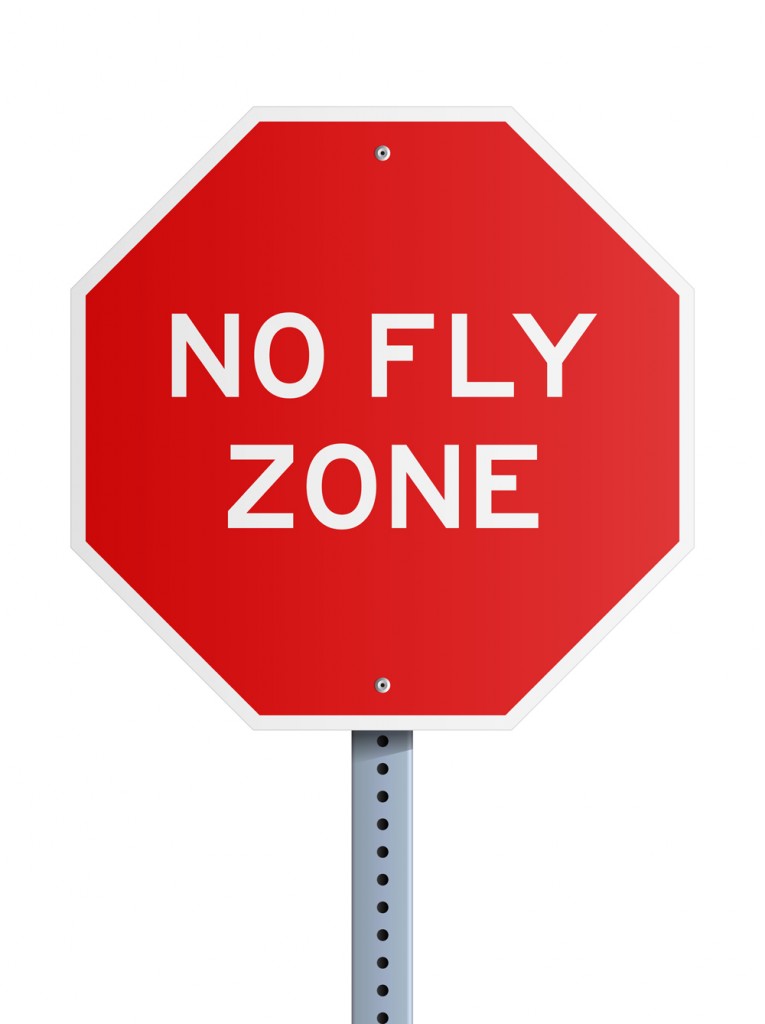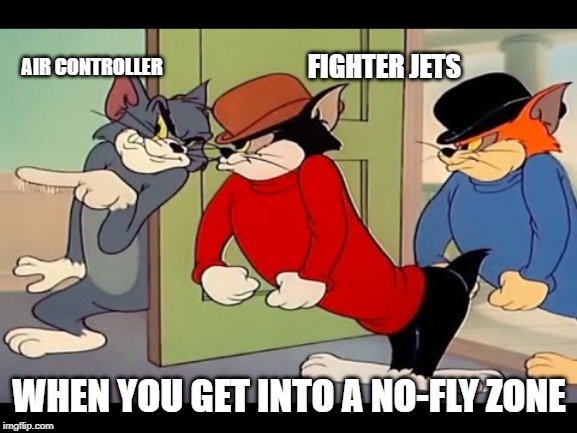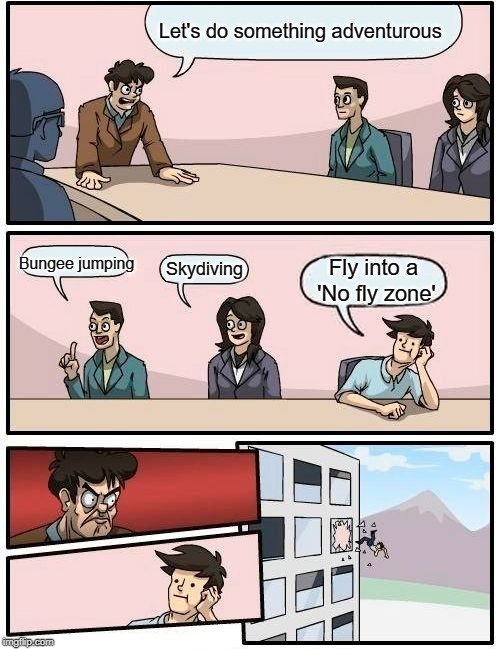Table of Contents (click to expand)
If you fly into a no-fly zone, you will be intercepted by fighter jets. The jets will try to communicate with you and guide you out of the no-fly zone. If you do not obey the fighter jets, they will fire flares at you and you will be forced to land at the nearest military airbase.
Imagine you’re a private pilot. You’re out in your prop plane, enjoying on an excursion on a Sunday morning. You get the feeling that it’s a propitious day for a flight—good weather with clear skies. You’re cruising with ease, but all of a sudden, you hear the sound of military jets following you. In no time at all, one jet is right next to your plane. Your heart begins to beat rapidly and you start to wonder what you have possibly done? Chances are that you’ve trespassed into prohibited airspace, called a no-fly zone.

So, what are no-fly zones and what happens if you trespass one of them in an airplane?
What Is A No-Fly Zone?
A no-fly zone (NFZ) is a territory over which an aircraft is restricted from flying. NFZs are also called no-flight zones or air exclusion zones.

No-fly zones are typically set up in military contexts and are usually patrolled by fighter jets or other military aircrafts. They are generally set up with a motive to keep civilian aircraft out of war zones. NFZs can also be used as political tools to warn an enemy nation not to even attempt to take to the sky.
No-fly zones were also established during two Olympic games—in China in 2008 and in Britain 2012—to preclude any untoward attempt to disrupt the global sporting event. Developed nations generally establish NFZs around important government offices, such as the American White House.
While the terms regulating a no-fly zone can vary by region, in extreme cases, an aircraft breaching a no-fly zone can be shot down with just a single warning.
Also Read: How Low Must Aircraft Fly To Avoid Radar Detection?
What Happens If You Trespass In A No-Fly Zone?
Unless there’s an emergency, or perhaps you’re simply incompetent, you would not risk flying into a restricted airspace as a pilot.
Warnings
In fact, before entering a no-fly zone, multiple warnings would be sent to you on several radio frequencies cautioning you to retreat. If you ignore the radio messages, a nearby Air Force base would be alerted of the transgression.

Fighter Jets In Action
At that point, the fighter jets would zoom into action and intercept you. Typically, two fighter jets would approach from the rear. One of the two will fly around and make a visual contact with you. As a pilot, you are trained in flight intercept protocols and there is only option left to dissuade the belligerent fighter jets from resorting to anything lethal.
To save your life and plane, the first step of flight intercept protocol is to acknowledge the intercept by rocking your wings. Meanwhile the pilot in the fighter jet would communicate with you over radio and expect you to heed to his queries attentively. At this stage, you are expected to acknowledge your mistake of intruding into a no-fly zone. If the jet pilot is convinced by your apology, he will guide you out of the no-fly zone area to a nearby air base. To do that, it would go past you and take a slow turn around to divert you from the protected area. If it turns abruptly and fires its flares, it implies that the fighter jet pilot is warning you for not obeying his instructions. This is a critical gesture, as you are supposed to follow instructions given by the fighter jet pilot immediately. Fighter jets will then divert you to the closest military airbase, where you make an urgent landing.
Stern Investigation By Civil Authorities
After landing, military forces are likely to detain you until the civil authorities arrive. Civil authorities will interrogate you about your trespassing pursuit. Depending on the plausibility of your excuse or reasoning, you might be charged with one or several criminal acts. It can turn out to be a pretty massive mistake on your part as a pilot if you want to continue your piloting career.
Unless they are convinced there was some real emergency and that you couldn’t avoid entering the no-fly zone, despite being warned, authorities are likely to suspend your pilot’s license either temporarily or permanently.
 So, to summarize, no-fly zones are established in wartime to protect civilians and in peacetime to safeguard the nation’s sovereignty. No matter what the purpose is, as a pilot, it is indispensable to be aware of any local no-fly zones and closely abide by their rules. Otherwise, it might cost you your piloting career or perhaps even your precious life!
So, to summarize, no-fly zones are established in wartime to protect civilians and in peacetime to safeguard the nation’s sovereignty. No matter what the purpose is, as a pilot, it is indispensable to be aware of any local no-fly zones and closely abide by their rules. Otherwise, it might cost you your piloting career or perhaps even your precious life!
How well do you understand the article above!

